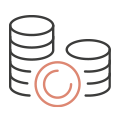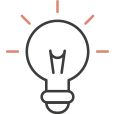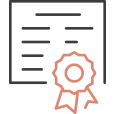As growing evidence indicates that the decline in the number of students matriculating in five-unit physics and mathematics is about to reverse, there is a need for determined action to widen the pipeline of potential students for advanced level study in high school.
This will require broadening the foundation’s focus to include junior high schools, in order to help teachers prepare a larger cadre of students. These students will enter high school with a solid knowledge-base and skills in mathematics and science, and with a sound perception of the effort which will be required of them in order to succeed in a five-unit track.
The Weizmann Institute’s Department of Science Teaching is proposing to tackle this issue in a profound manner. They suggest working with science and mathematics department heads in their schools, helping them to organize their teaching staff into communities of practice. In these communities, teachers will routinely engage in improving instruction and building a continuum of learning from middle to high school. They will adapt learning materials and delve into content and pedagogical methods in order to establish student understanding and motivation, so that when they reach the point of selecting matriculation tracks, they will be more prepared, with a stronger foundation of knowledge, and more motivated to invest in studying at an advanced level.
In the first stage, the Weizmann Institute will develop the department-head training and supervision model as well as materials and tools for the school-based communities. These will include diagnostic assignments that will allow teachers to diagnose students’ difficulties and adapt their teaching, and tools which allow the department head to observe other teachers and give them effective feedback that promotes student learning.
In order to do this, they will work with demonstration schools in two districts over a period of two years, establishing a total of 18 professional communities led by their respective department heads. The department heads will participate in a 30-hour summer training course at the Weizmann Institute, during which they will learn about assessment methods, scientific models, research skills, and how to guide their peers. They will then be expected to work in their respective schools with teachers in their departments for two hours a week over the school year during regular school hours.
In a second phase, another 60 master teachers will be trained, based on the lessons learned during the pilot stage, and will go on to train and mentor a group of department heads across the country. This method will allow the model to expand to 250 department heads in approximately 125 schools. The scaling-up process will be closely coordinated with a national effort on master teachers, which is currently led by the Ministry of Education, in partnership with Yad Hanadiv (the Rothschild Foundation) and the Trump Foundation. This effort aims to provide master teachers in Israel with roles and functions which are needed to help teachers improve their practice collaboratively.
The Weizmann Institute’s Department of Science Teaching is one of the foundation’s key partners in developing quality teaching components for mathematics and the sciences, and it was recently chosen by the Education Ministry to operate national teacher centers for physics, chemistry, biology, and the sciences in middle schools. For many years it served as the central headquarters for the National Center for Science Teaching, and as a leader in developing and preparing science learning material.
* The text above shows the grant as approved by the Foundation’s Board of Directors / Grant 156





